Filter by
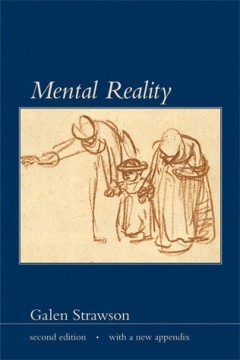
Mental reality (Second Edition, With A New Appendix)
"A Bradford book.""In Mental reality, Galen Strawson argues that much contemporary philosophy of mind gives undue primacy of place to publicly observable phenomena, nonmental phenomena, and behavioral phenomena (understood as publicly observable phenomena) in its account of the nature of mind. It does so at the expense of the phenomena of conscious experience. Strawson describes an alternative …
- Edition
- 2nd ed., with a new appendix.
- ISBN/ISSN
- 9780262259224
- Collation
- 1 online resource (xx, 373 pages) :illustrations.
- Series Title
- -
- Call Number
- -
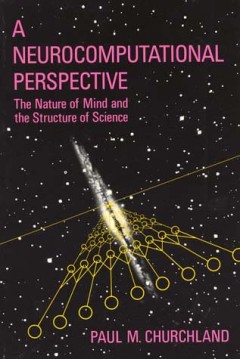
A neurocomputational perspective :the nature of mind and the structure of sci…
If we are to solve the central problems in the philosophy of science, Paul Churchland argues, we must draw heavily on the resources of the emerging sciences of the mind-brain. A Neurocomputationial Perspective illustrates the fertility of the concepts and data drawn from the study of the brain and of artificial networks that model the brain. These concepts bring unexpected coherence to scattere…
- Edition
- -
- ISBN/ISSN
- 9780262270328
- Collation
- 1 online resource (xvii, 321 pages) :illustrations
- Series Title
- -
- Call Number
- -
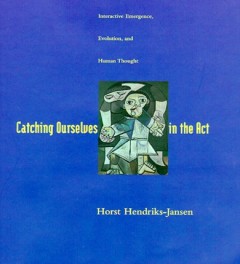
Catching Ourselves in the Act: Situated Activity, Interactive Emergence, Evol…
"A Bradford book."OCLC-licensed vendor bibliographic record. Catching Ourselves in the Act uses situated robotics, ethology, and developmental psychology to erect a new framework for explaining human behavior. Rejecting the cognitive science orthodoxy that formal task-descriptions and their implementation are fundamental to an explanation of mind, Horst Hendriks-Jansen argues for an alternative…
- Edition
- -
- ISBN/ISSN
- 9780262275262
- Collation
- 1 online resource (xii, 367 pages).
- Series Title
- -
- Call Number
- -
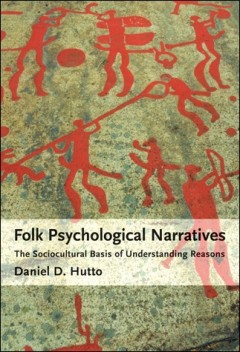
Folk psychological narratives The Sociocultural Basis of Understanding Reasons
An argument that challenges the dominant "theory theory" and simulation theory approaches to folk psychology by claiming that our everyday understanding of intentional actions done for reasons is acquired by exposure to and engaging in specific kinds of n.
- Edition
- -
- ISBN/ISSN
- -
- Collation
- 1 online resource (xvii, 402 pages)
- Series Title
- -
- Call Number
- -
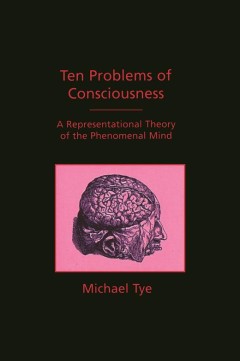
Ten Problems of Consciousness: A Representational Theory of the Phenomenal Mind
A Bradford book."OCLC-licensed vendor bibliographic record.
- Edition
- -
- ISBN/ISSN
- 9780262285322
- Collation
- 1 online resource (xvi, 248 pages) :illustrations.
- Series Title
- -
- Call Number
- -
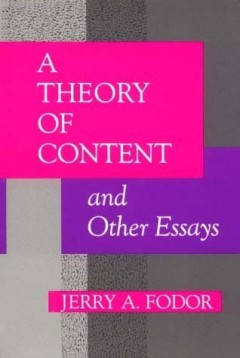
A Theory of Content and Other Essays
A Bradford book."OCLC-licensed vendor bibliographic record.
- Edition
- -
- ISBN/ISSN
- 9780262287999
- Collation
- 1 online resource (xii, 270 pages)
- Series Title
- -
- Call Number
- -
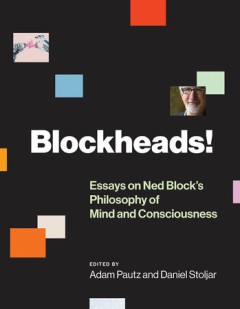
Blockheads! :essays on Ned Block's philosophy of mind and consciousness
New essays on the philosophy of Ned Block, with substantive and wide-ranging responses by Block. Perhaps more than any other philosopher of mind, Ned Block synthesizes philosophical and scientific approaches to the mind; he is unique in moving back and forth across this divide, doing so with creativity and intensity. Over the course of his career, Block has made groundbreaking contributions to …
- Edition
- -
- ISBN/ISSN
- 9780262348973
- Collation
- 1 online resource (vii, 634 pages).
- Series Title
- -
- Call Number
- -
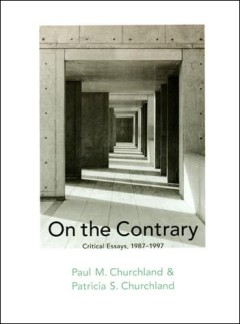
On the contrary :critical essays, 1987-1997
Paul and Patricia Churchland take on their critics—with verve, combativeness, and generosity. Paul M. and Patricia S. Churchland are towering figures in the fields of philosophy, neuroscience, and consciousness. This collection was prepared in the belief that the most useful and revealing of anyone's writings are often those shorter essays penned in conflict with or criticism of one's prof…
- Edition
- -
- ISBN/ISSN
- 0585021848
- Collation
- 1 online resource (xii, 349 pages) :illustrations.
- Series Title
- -
- Call Number
- -
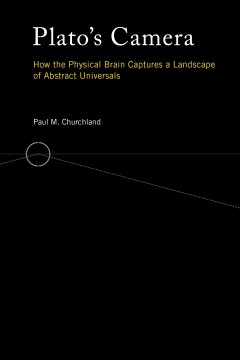
Plato's camera :how the physical brain captures a landscape of abstract unive…
A noted philosopher draws on the empirical results and conceptual resources of cognitive neuroscience to address questions about the nature of knowledge. In Plato's Camera, eminent philosopher Paul Churchland offers a novel account of how the brain constructs a representation--or "takes a picture"--of the universe's timeless categorical and dynamical structure. This construction process, which …
- Edition
- -
- ISBN/ISSN
- 9780262302869
- Collation
- 1 online resource (x, 289 pages, 12 unnumbered pages of plates) :illustrations (some color)
- Series Title
- -
- Call Number
- -
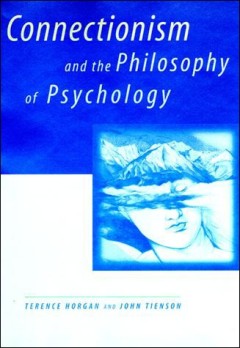
Connectionism and the Philosophy of Psychology
Human cognition is soft. It is too flexible, too rich, and too open-ended to be captured by hard (precise, exceptionless) rules of the sort that can constitute a computer program. In Connectionism and the Philosophy of Psychology, Horgan and Tienson articulate and defend a new view of cognition. In place of the classical paradigm that take the mind to be a computer (or a group of linked compute…
- Edition
- -
- ISBN/ISSN
- 9780262275675
- Collation
- 1 online resource (xiii, 207 pages) :illustrations
- Series Title
- -
- Call Number
- -
 Computer Science, Information & General Works
Computer Science, Information & General Works  Philosophy & Psychology
Philosophy & Psychology  Religion
Religion  Social Sciences
Social Sciences  Language
Language  Pure Science
Pure Science  Applied Sciences
Applied Sciences  Art & Recreation
Art & Recreation  Literature
Literature  History & Geography
History & Geography